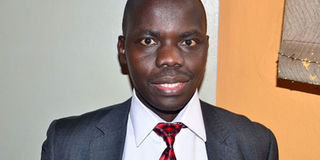Mr President, provide food aid to Ugandans in cash

TABU BUTAGIRA
What you need to know:
- They argue that the government relief support should be expanded countrywide, even if the recipient group is narrowly
defined. There are far worse-off urban poor outside the capital and Uganda government statistics year-on-year shows poverty levels highest in eastern and northern parts of the country. These people cannot suddenly be self-clothed
against lockdown vagaries.
On Friday, April 17, 2020, I had random conversations with Ugandans in Uganda about coping under the lockdown.
Two said their families hadn’t had a meal in two days. Neither lives in metropolitan Kampala where food distribution to the most vulnerable (those government says live hand-to-mouth) is underway.
Reason for relief: Coronavirus-induced lockdown shut down livelihoods. This well-intentioned exercise was jinxed from start and Office of the Prime Minister bureaucrats adversely named in the process are facing prosecution.
Yet, to-date, far fewer needy families in the city Divisions have been reached. There is rising tension and anxiety among those on the fringes and questionable quality of the food aid sparked an embarrassing disagreement between Cabinet ministers during a televised presidential address on Sunday (April 19).
These sideshows are a distraction rather to avoid during health emergency response.
The decision to provide relief food only in Kampala and Wakiso districts may have been contingent upon the size of the kitty.
Besides, other possible calculi are that majority urban poor are concentrated in metropolitan Kampala and their restlessness and desperation could result in a rise in crime rate and spark protests with potential to quickly imperil central government’s functioning.
Yet the anecdotal evidence shared at the outset shows that there are families, likely millions, outside Kampala that are starving.
They know the government is already distributing relief food in the capital.
President Museveni has stated that people upcountry depend on their gardens and that the lockdown has affected neither cultivation nor harvesting. However, the following issues arise: many upcountry families rely on transfers from relatives in the city for survival and majority of elderly Ugandans, who require better feeding and would be most vulnerable to Covid-19, live in villages.
They number, 1.2 million, according to the 2016/17 Uganda National Household Surveys (UNHS).
I argue that the government relief support should be expanded countrywide, even if the recipient group is narrowly defined. There are far worse-off urban poor outside the capital and Uganda government statistics year-on-year shows poverty levels highest in eastern and northern parts of the country.
These people cannot suddenly be selfclothed against lockdown vagaries.
They may be the lot the President told to wait as they “were already poor before the pandemic,” and as such their plight will be resolved through other government interventions, but hunger does not wait. So, extending assistance to them would be just as vital on humanitarian, security and political grounds.
What requires to be adjusted, in my view, is the form of support. Rather than buy and distribute actual food, the Shs59b relief food budget should be transferred in cash.
Why? The current arrangement is wasteful and bleeds resources on food logistics (contracting, transportation, storage, deliveries, allowances for distribution teams and security).
These exercises encourage physical interface, increase possibility of disease spread, raise anxiety and tension due to delays and diversify opportunities for stealing either the cash for food or food itself.
Then there’s the problem of questionable food quality. If data from Ubos, Ministry of Local Government, NIRA, Electoral Commission, Uganda Registration Services Bureau and Telecoms are collated, it’s possible to map out near-accurate numbers and contacts of households.
Or, the money can be sent directly to phone numbers of all LC1 chairpersons who then electronically transfer the cash to all household heads in their villages. The rate per household should be uniform. It will be no money to some people, some money for some people and a lot of money for many people.
There are 8.5 million households in Uganda, the 2016/17 UNHS shows. A list of the most vulnerable based on income can be extracted to receive aid.
This will enable families to buy that they need most, increase speed of reach of assistance, eliminate middlemen and spur localised economic activity. Mobile money cash transfers could have some risks; family head blowing it on alcohol, multiple transfers to same number or fights between couples.
But it’s far safer and more reliable. The Social Assistance Grants for Empower that benefits our senior citizens demonstrates this approach works.
The government can impress it upon telecoms not to deduct the food relief transfers to settle existing loans by subscribers and withdrawals charge-free. To put it crudely, tax payers will at least eat their money directly.
For political spin-off and health messaging, add a note to every recipient: ‘GoU thanks you for following advice on coronavirus prevention.’
If financial contributions pouring in from well-wishers and Shs10b planned to be gifted to MPs are redirected to the food relief kitty, it’s possible to have some reasonable cash transfers to the most needy.
Mr Butagira is a Ugandan.
[email protected]
@tbutagira




